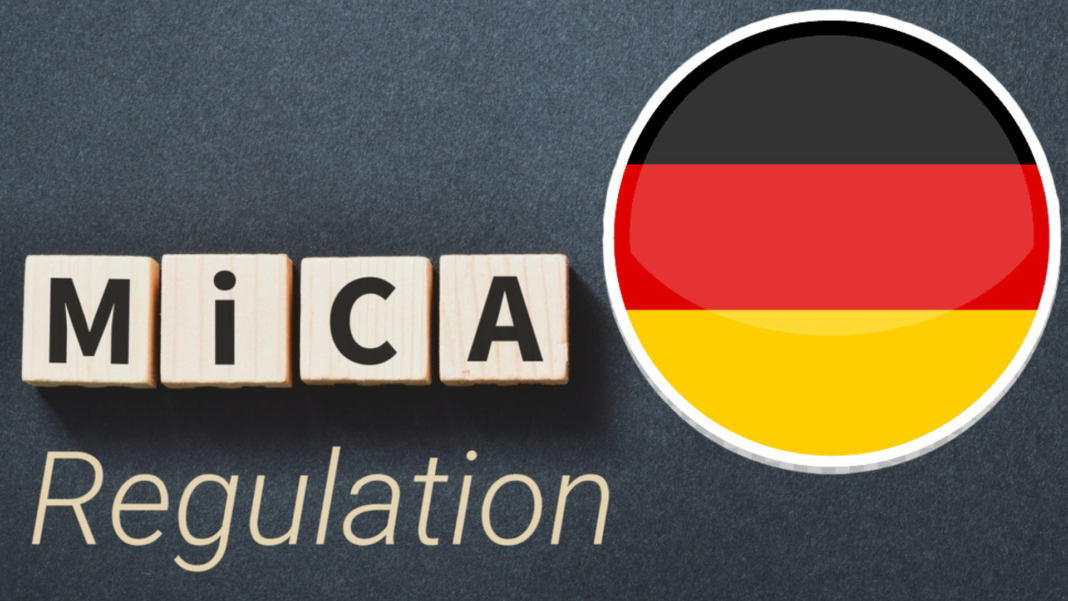As the European Union’s new comprehensive crypto asset market regulations (MiCAR) prepare to take effect at the end of this year, German companies are facing a significant challenge in obtaining the necessary MiCAR licenses.
This is due to the failure to pass certain key legislation in the country, leaving the local regulatory agency, BaFin, unable to issue the required MiCAR cryptocurrency licenses to domestic firms.
In contrast, foreign companies already licensed elsewhere in Europe can freely operate in Germany and across the EU, highlighting the regulatory disparity.
Country-Specific MiCAR Implementation Complexities
The implementation of MiCAR has revealed nuanced, country-specific aspects that are complicating the licensing process for German companies.
One such example is the requirement for each EU member state to designate a regulatory agency to oversee the issuance of licenses for crypto asset service providers (CASPs).
In Germany, this responsibility falls on BaFin, the Federal Financial Supervisory Authority.
However, the designation of BaFin as the competent authority is part of a draft law that has yet to be adopted, owing to the collapse of the coalition government. This legislative gridlock makes it highly unlikely that the necessary bill will be passed in the near future.
Also Read: Germany’s Samara Asset Group To Issue €30M Nordic Bond To Expand Bitcoin Holdings
Impact on Banks and Existing Crypto Firms
The regulatory challenges extend beyond just new crypto startups, as they also affect established financial institutions.
Banks and securities firms in Germany had the option to extend their existing licenses to qualify as MiCAR CASPs.
Unfortunately, due to the current limitations, BaFin is unable to facilitate this process. Additionally, Germany had its own set of cryptocurrency regulations in place prior to the introduction of MiCAR.
The draft law suggests that companies already authorized under the previous regime can continue their activities, but they will need to reapply for a MiCAR license next year.
Proposed Legislation and Academics’ Concerns
The first iteration of the Financial Markets Digitalization Act (FinmadiG), released in October 2023, introduced the Crypto Market Regulation Act (KMAG) to replace Germany’s existing crypto rules with the new MiCAR framework.
However, this proposed legislation has faced delays, with the German implementation law originally scheduled to come into effect on June 30, 2024, when the EU’s stablecoin regulations were set to take effect.
Recognizing the gravity of the situation, a group of German academics recently wrote to the Bundestag Finance Committee, highlighting the country’s breach of EU law due to the lack of timely implementation.
Emerging Opportunities in the Crypto Landscape
Despite the regulatory challenges, Germany’s cryptocurrency landscape is also witnessing positive developments.
The recent establishment of the Bitcoin Federal Association in the Bundestag, founded with 64 initial members including prominent Bitcoin advocates and businesses, represents a significant step towards promoting financial education and Bitcoin-friendly policies in Germany and across Europe.
This initiative comes at a critical juncture, as the German government continues to navigate the evolving cryptocurrency market and regulatory landscape.
Also Read: Lennertz & Co. Germanys Investment Behemoth Expands Crypto Footprint With $165M Third Fund


